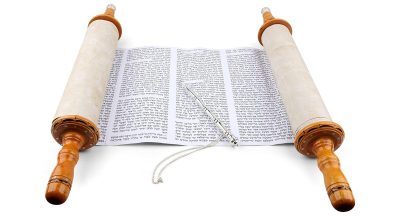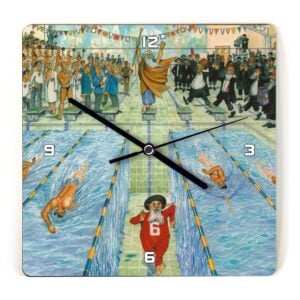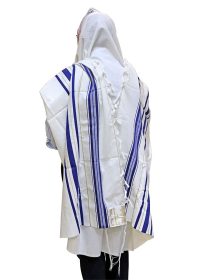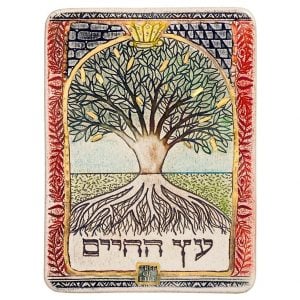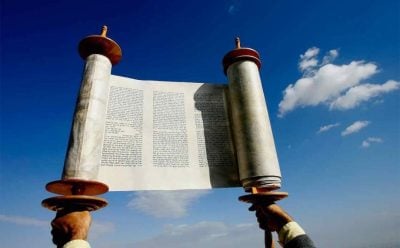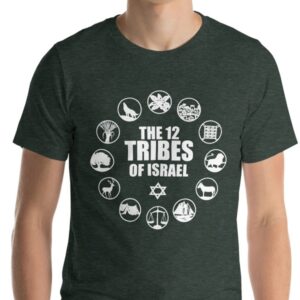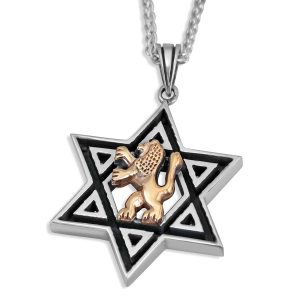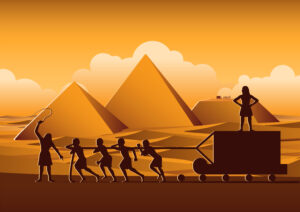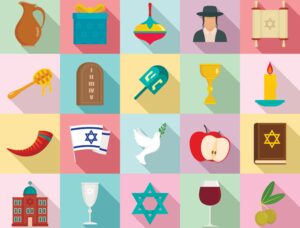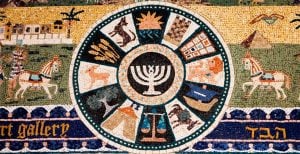Father’s Day 2023 falls on Sunday, June 18, in the United States, Canada, and many other countries around the world. While Father’s Day isn’t a Jewish holiday per se, many Jewish families use this day as an opportunity to honor the father figures in their lives who deserve to be celebrated.
Like so many relationships and roles in life, Judaism has a lot to say about fathers and fatherhood. There are dozens of fathers in the Torah, the Tanakh, the Talmud and other traditional Jewish texts. There are also plenty of nuggets of wisdom on parenthood, as well as multiple commandments specifically for dads.
So in honor of Father’s Day, here is what we can learn about fatherhood from Judaism!

Fathers have certain responsibilities
There are five mitzvot or commandments that address a father’s obligation toward his sons specifically.
According to the Talmud (in Kiddushin 1): “A father is obligated with regard to his son to circumcise him, and to redeem him if he is a firstborn son, and to teach him Torah, and to marry him to a woman, and to teach him a trade. And some say: A father is also obligated to teach his son to swim.”
The first three of these commandments are derived from the Torah, while the mitzvah of marrying off sons is found in the Tanakh, specifically in Jeremiah.
The commandment to teach one’s son a trade is less clear, but is traced back to Ecclesiastes (Kohelet), which says, “Enjoy a livelihood with the wife whom you love,” which the Sages of the Talmud came to understand as also meaning that one’s son must have a chance to enjoy the same opportunity.
The final mitzvah of teaching one’s son how to swim is also found in the Talmud, in tractate Kiddushin 30, and was expanded on by the famous commentator Rashi. Rashi explains that there is a greater purpose than the skill of swimming; the father’s responsibility was really to teach his son how to survive.
Swimming served as a great example because boat travel was more common in ancient times, as was bathing in moving waters, such as a river or stream. By teaching one’s son how to swim, a father is also doing what he can to preserve life (pikuach nefesh), which is a central commandment in Judaism.
Take home your own Tanakh or Hebrew Bible – with English translation from top Jewish scholars – and get inspired by our ancient stories and Jewish wisdom!

Great dads have certain qualities
Jewish texts talk about fathers a lot. While the Torah and Tanakh are full of family trees explaining who is related to whom, some passages also elaborate on what truly constitutes a father beyond biological factors.
The commentary Shemot Rabbah 46:5 explicitly explains that, “He who brings up a child is to be called its father, not he who gave birth.”
Jewish texts also give us an idea of what characteristics a father should have. For example, in Psalm 103, fathers are understood as the central forgiving and understanding figures in our lives. Pirkei Avot — the part of the Mishnah that explains the wisdom needed to conduct a moral and wholesome life — literally translates to “Ethics of the Fathers,” insinuating that fatherhood also means being an upstanding person who plays a role in making the world a better place.
Dads are also associated with creation in Judaism, especially throughout the Torah, where God is often compared to a father. In Deuteronomy, Moses compares the way that God took care of the Israelites throughout the Exodus as being similar to the way “a father carries his child.”
The Torah’s first dialogue between a father and son occurs in Genesis 22, between Abraham and Isaac. Isaac cries out, “Where are you, my father?” and Abraham replies, “Here I am.” Many rabbis and Jewish thinkers have gathered from that verse that the most important thing a father can be is present.

The three patriarchs as models of fatherhood
Abraham (Avraham) was a literal father to Issac and Ishmael. Some may think citing him as an example of model fatherhood would be controversial, considering he nearly sacrificed Isaac to God and sent Ishmael and his mother away. However, Abraham’s faith and dedication to God (which was tested 10 separate times in the Book of Genesis!) and to the Jewish people have proven to be a virtue, and one which Jews everywhere have carried on for thousands of years throughout many different challenges.
Unsure what to get the awesome dads in your own life for Father’s Day 2023 and beyond? Luckily we have a collection of amazing gifts made for fathers, straight from the Land of Israel! Check out our Top 20 Father’s Day gift guide, or view our full selection here.
Celebrate your father every day of the year! We’ve gathered the top gifts from Israeli artists and designers for special dads everywhere!

